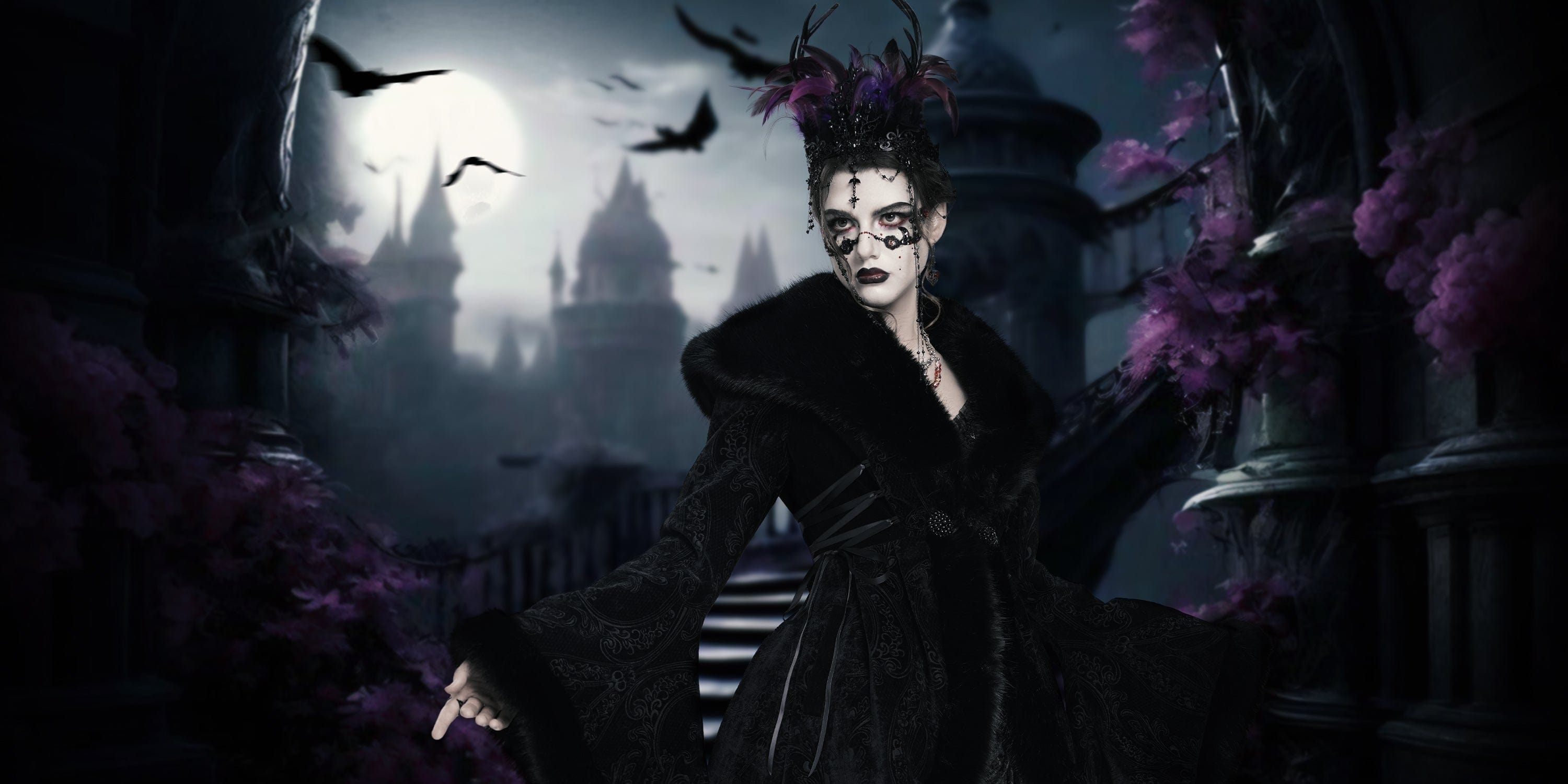Punk rock is more than just a genre of music; it's a cultural movement, a way of life, and a symbol of rebellion. Punk rock is a rebellious and influential music genre that emerged in the mid-1970s, primarily in the United States and the United Kingdom. It is characterized by its raw, DIY (do-it-yourself) ethos, short and fast-paced songs, and often socially and politically charged lyrics. Punk rock represents a countercultural movement that goes beyond music, encompassing fashion, art, and a distinct attitude.
In this blog, we will explore its origins, principles, and punk rock clothing.
Origins of Punk Rock
Punk rock, a genre characterized by its aggressive sound, anti-establishment attitude, and DIY ethos, emerged in the mid-1970s and quickly became a counter-cultural movement. It stood in stark contrast to the prevailing trends in rock music at the time, offering a loud and rebellious alternative. To understand the origins of punk rock, we must delve into the cultural and musical landscape of the 1960s and early 1970s.
The Precursors
Punk rock did not simply appear out of thin air. It was influenced by a variety of musical and cultural elements, some of which date back to the 1960s. Bands like The Velvet Underground, with their raw and minimalist approach, laid the groundwork for punk's stripped-down sound. Similarly, garage rock bands of the mid-1960s, including The Sonics and The Kingsmen, introduced punk-like elements, such as distortion and simple chord progressions.
A Changing World
The early 1970s were a tumultuous time in history, marked by social upheaval, political unrest, and economic struggles. The counterculture movement of the 1960s had given way to disillusionment, and young people were increasingly disenchanted with the establishment. Punk rock was, in part, a reaction to this changing world.
New York City and CBGB
One of the epicenters of the punk rock movement was New York City, specifically the club CBGB. CBGB, located in the Bowery neighborhood of Manhattan in New York City, is often considered the birthplace of punk rock. The club opened in 1973 and became a key venue for the emerging punk rock scene in the mid-1970s. CBGB hosted influential bands like the Ramones, Blondie, Talking Heads, and Patti Smith, among others, helping to define the sound and attitude of punk rock. It played a crucial role in the development of the genre and is remembered as an iconic venue in the history of punk music. These bands brought a rebellious and minimalist sound that was a direct response to the excesses of mainstream rock.
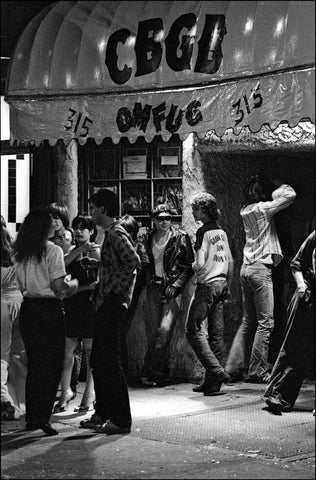
The Ramones
The Ramones, often referred to as the first true punk band, formed in 1974. With their short, fast songs and distinctive looks (leather jackets, torn jeans, and shaggy hair), they became a symbol of punk's rejection of mainstream norms. Songs like "Blitzkrieg Bop" and "I Wanna Be Sedated" exemplified the simplicity and aggression of punk music.
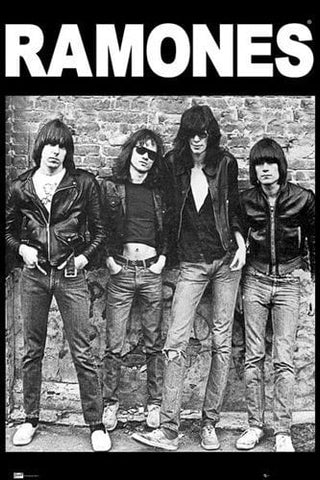
The British Invasion
Punk rock was not limited to the United States. In the United Kingdom, bands like the Sex Pistols and The Clash brought their brand of punk to the forefront. The Sex Pistols, in particular, gained notoriety for their provocative lyrics and confrontational attitude. The punk scene in the UK was closely tied to the working-class struggles of the time and served as a channel for social frustration and rebellion.
DIY Ethos
Punk rock embraced a "do it yourself" ethos. Many early punk bands had limited musical skills but compensated with raw energy and a desire to create their music on their terms. This independence was expressed through self-released singles, homemade merchandise, and small, independent record labels. This approach not only empowered musicians but also inspired countless others to start their bands.
Legacy
The impact of punk rock extends far beyond its 1970s origins. It has influenced subsequent generations of musicians across various genres, from alternative rock to grunge and even some sub-genres of hip-hop. Punk's spirit of rebellion, anti-authoritarianism, and individualism continues to resonate with those who reject conformity and embrace the DIY mindset.
The origins of punk rock can be traced back to a complex combination of cultural, musical, and socio-political factors. It was a response to the changing world of the 1970s and the desire to strip away the excesses of mainstream rock music. Punk's legacy lives on as a testament to the power of rebellion, individualism, and the enduring appeal of raw, unapologetic music.
What are punk rock principles?
Punk rock, with its rebellious spirit, raw energy, and DIY ethos, is more than just a music genre – it's a cultural movement that has left an indelible mark on society. We will delve into the core principles that define punk rock and explore how they continue to resonate with people around the world.
Individuality and Non-Conformity
At the heart of punk rock lies the principle of individuality and non-conformity. Punk encourages people to be themselves, embrace their uniqueness, and reject societal norms and expectations. Punk rockers often sport distinctive hairstyles, clothing, and body modifications as a form of self-expression. The message is clear: don't be afraid to stand out and defy the status quo.
DIY (Do It Yourself)
One of the most iconic punk rock principles is the DIY attitude. Punk bands often recorded their music, designed their album covers, and booked their shows without relying on major record labels or corporations. This self-reliant spirit extends to all aspects of life. Punk rockers emphasize taking matters into their own hands and not waiting for external authorities to solve problems.
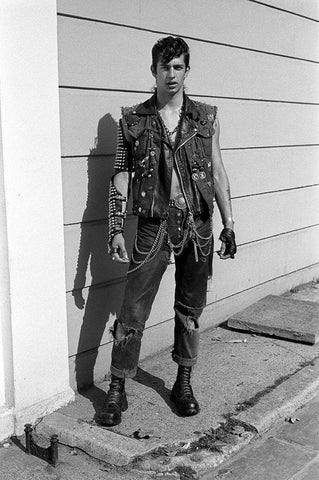
Political Activism
Punk rock is a platform for political activism and social change. Many punk songs address issues like government corruption, inequality, and human rights abuses. Bands like The Clash and Dead Kennedys used their music as a tool to raise awareness and inspire change. The punk rock community is known for its dedication to social justice causes and grassroots organizing.
Anti-Authoritarianism
Punk rock often rebels against authority, be it governmental, corporate, or institutional. The "us against them" mentality is a recurring theme in punk lyrics and culture. Punk rockers question authority, challenge the establishment, and advocate for individual freedoms. This anti-authoritarian spirit has been a catalyst for countercultural movements throughout history.
Inclusivity and Acceptance
Despite its rebellious image, punk rock also promotes inclusivity and acceptance. The punk community is known for its welcoming attitude toward people of diverse backgrounds, identities, and beliefs. Punk shows are often spaces where anyone can find a sense of belonging, regardless of their race, gender, or sexual orientation.
Music and Artistic Expression
Punk rock places a heavy emphasis on musical and artistic expression. The music itself is often characterized by a "do it fast, do it loud" mentality, with a focus on simplicity and passion over technical prowess. Punk artwork, whether on album covers or flyers, is bold and unapologetic, often featuring provocative imagery and social commentary.
These principles challenge conformity, champion self-expression, and promote social change. While punk rock may have originated in the 1970s, its influence continues to reverberate through various aspects of society, inspiring people to embrace their individuality, reject the status quo, and fight for a better world. Whether you're a die-hard punk rocker or simply appreciate the values it represents, the punk rock spirit reminds us to question authority, think for ourselves, and stand up for what we believe in.
Exploring Punk Rock Clothing
Punk rock clothing was a deliberate deviation from the norm. Punks sought to shock and provoke with their attire. Early punk fashion was often about repurposing or deconstructing existing garments, such as torn T-shirts, leather jackets, and safety pins. This DIY mentality was a reflection of the movement's anti-establishment and anti-consumerist stance.
Key Elements of Punk Rock Clothing
DIY Aesthetic
One of the fundamental aspects of punk rock fashion is the "Do It Yourself" (DIY) ethos. Punks embraced the idea of creating their clothing, often using unconventional materials like safety pins, duct tape, and marker pens. Tattered jeans, hand-painted leather jackets, and customized band t-shirts became iconic punk fashion items, symbolizing individuality and nonconformity.
Band Merchandise
Band t-shirts are a staple of punk rock clothing. These shirts feature the logos and artwork of favorite punk and rock bands, proudly worn by fans to express their music preferences and rebellion. Wearing band merchandise is a way to show solidarity with the bands and the punk community.
The Dominant Color--black
The punk rock wardrobe is characterized by a predominantly black color scheme. Black leather jackets, black skinny jeans, black t-shirts, and black combat boots are classic punk staples. The all-black look is not just a fashion statement; it's a symbol of the subculture's rebellion and anti-establishment attitude.
Leather and Studs
Leather jackets adorned with metal studs or spikes are synonymous with punk rock fashion. These jackets, often embellished with band patches and pins, provide both a tough and edgy appearance. The leather and studs combination exudes a sense of defiance and rebellion.
Plaid
Punk fashion has also embraced tartan or plaid patterns, giving rise to the classic punk plaid shirt. This pattern, often associated with Scottish heritage, was appropriated by punks to create a distinctive, rebellious look. It became a symbol of anti-authoritarianism and a rejection of traditional norms.
Ripped Clothing
Ripped clothing, especially ripped and torn jeans, is another prominent feature of punk rock fashion. This style conveys a sense of rebellion and an anti-establishment attitude. Punks often took scissors or razor blades to their clothing to create a ragged, distressed look.
Unique Accessories
Accessories play a crucial role in punk fashion. Heavy silver chains, oversized and studded belts, and leather wristbands are all common accessories. Safety pins, once used for practical purposes, are now iconic punk accessories, often used to hold clothing together or as decorative elements.
Tattoos and Body Piercings
Punk fashion often goes hand in hand with tattoos and body piercings. These are not just fashion choices but also expressions of personal identity and rebellion. Tattoos often feature punk motifs, band logos, and political or social statements.
Punk rock clothing is a statement of rebellion, individualism, and nonconformity. From DIY aesthetics to leather jackets, ripped jeans, and tartan patterns, punk fashion has evolved over the years but continues to embody the same spirit of resistance against the mainstream. Whether you're a die-hard punk or just appreciate the style, the key elements of punk rock clothing will always stand as a symbol of defiance and self-expression.
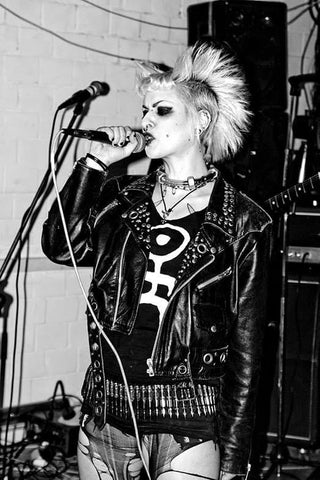
Punk rock is not just a genre of music; it's a cultural phenomenon that continues to shape the world. Its raw and rebellious spirit, DIY ethos, and unapologetic attitude have made it a symbol of counterculture. As punk rock celebrates its roots while evolving and adapting, its influence remains relevant, reminding us to question, challenge, and express ourselves fearlessly. Whether you're a punk enthusiast or simply curious, punk rock's legacy is a testament to the power of music and rebellion.

 WK-523XCF
WK-523XCF T45387
T45387 Y-349
Y-349 WY-1427CCM
WY-1427CCM PT221
PT221 BE55785
BE55785
